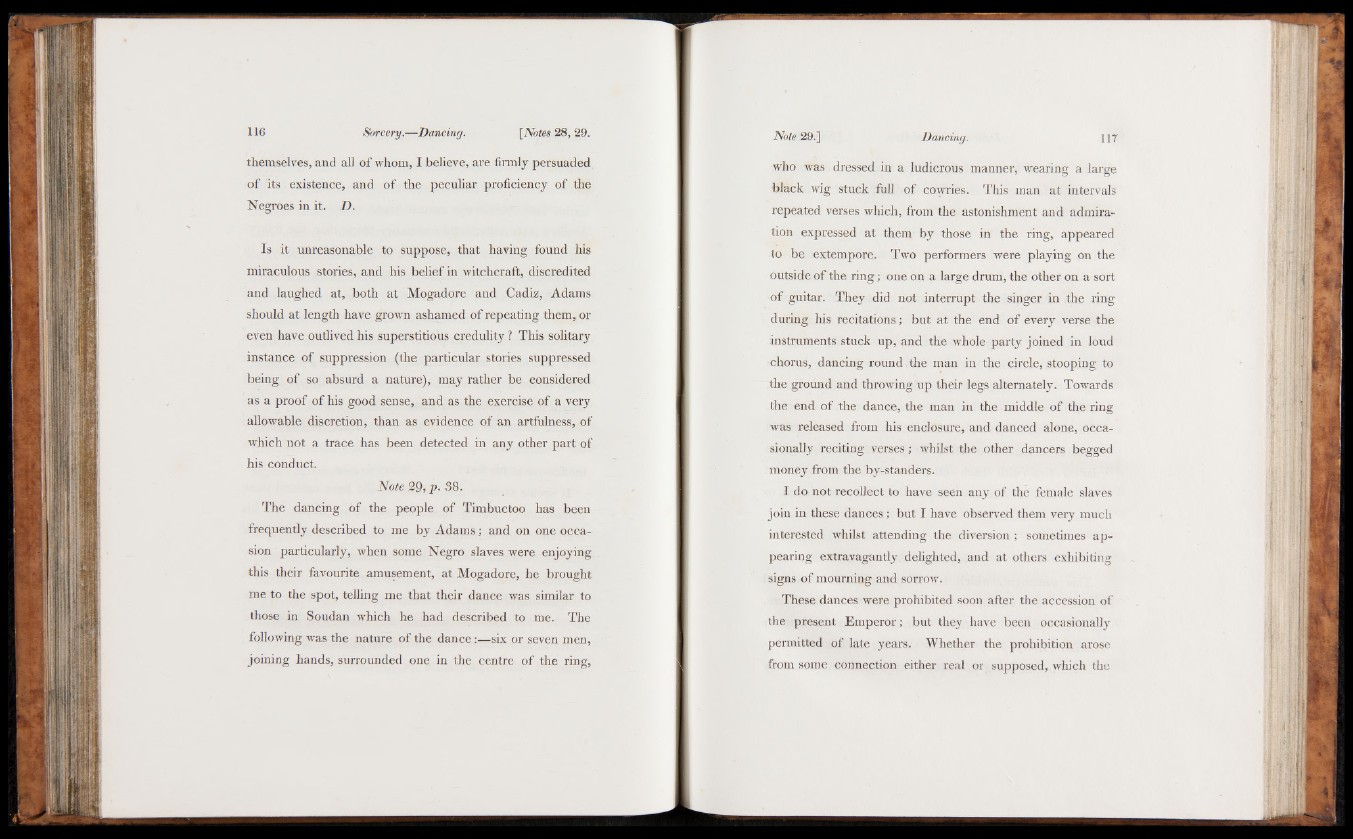
Sorcery.—Dancing. [Notes 28, 29.
themselves, and all of whom, I believe, are firmly persuaded
of its existence, and of the peculiar proficiency of the
Negroes in it. D.
Is it unreasonable to suppose, that having found his
miraculous stories, and his belief in witchcraft, discredited
and laughed at, both at Mogadore and Cadiz, Adams
should at length have grown ashamed of repeating them, or
even have outlived his superstitious credulity ? This solitary
instance of suppression (the particular stories suppressed
being of so absurd a nature), may rather be considered
as a proof of his good sense, and as the exercise of a very
allowable discretion, than as evidence of an artfulness, of
which not a trace has been detected in any other part of
his conduct.
Note 29, p. 38.
The dancing of the people of Timbuctoo has been
frequently described to me by Adams; and on one occasion
particularly, when some Negro slaves were enjoying
this their favourite amusement, at Mogadore, he brought
me to the spot, telling me that their dance was similar to
those in Soudan which he had described to me. The
following was the nature of the dance:—six or seven men,
joining hands, surrounded one in the centre of the ring,
Note 29.] Dancing. 117
who was dressed in a ludicrous manner, wearing a large
black wig stuck full of cowries. This man at intervals
repeated verses which, from the astonishment and admiration
expressed at them by those in the ring, appeared
to be extempore. Two performers were playing on the
outside of the ring; one on a large drum, the other on a sort
of guitar. They did not interrupt the singer in the ring
during his recitations; but at the end of every verse the
instruments stuck up, and the whole party joined in loud
chorus, dancing round the man in the circle, stooping to
the ground and throwing up their legs alternately. Towards
the end of the dance, the man in the middle of the ring
was released from his enclosure, and danced alone, occasionally
reciting verses; whilst the other dancers begged
money from the by-standers.
I do not recollect to have seen any of the female slaves
join in these dances; but I have observed them very much
interested whilst attending the diversion; sometimes appearing
extravagantly delighted, and at others exhibiting
signs of mourning and sorrow.
These dances were prohibited soon after the accession of
the present Emperor; but they have been occasionally
permitted of late years. Whether the prohibition arose
from some connection either real or supposed, which the